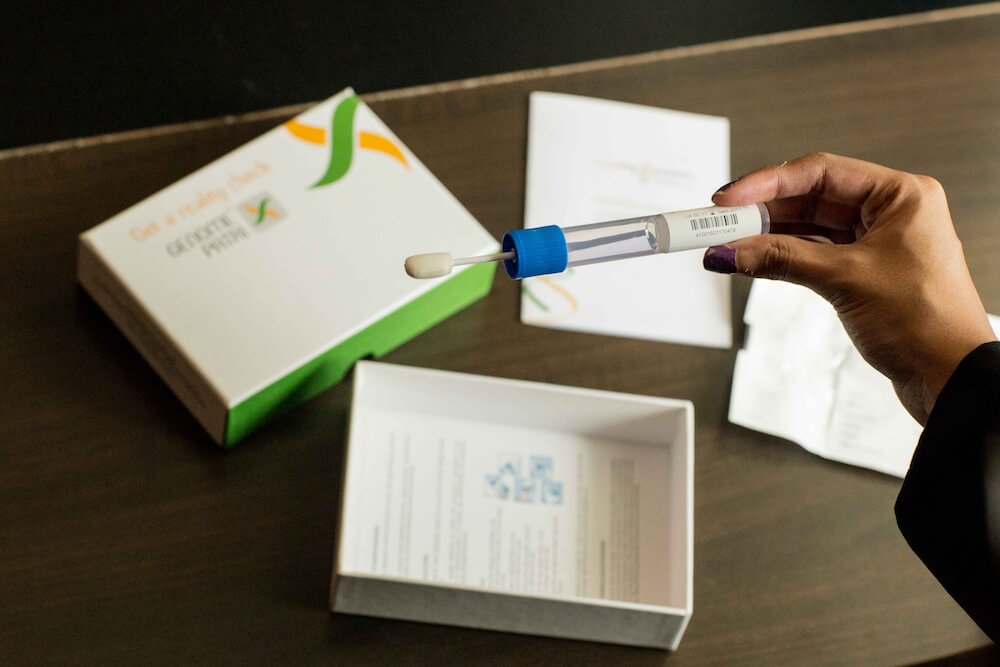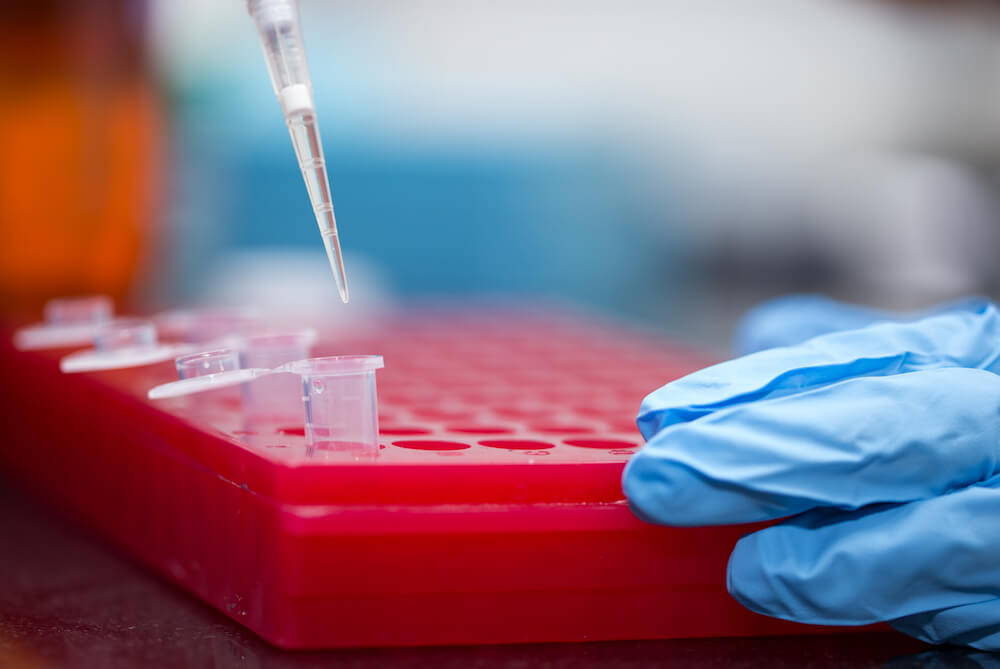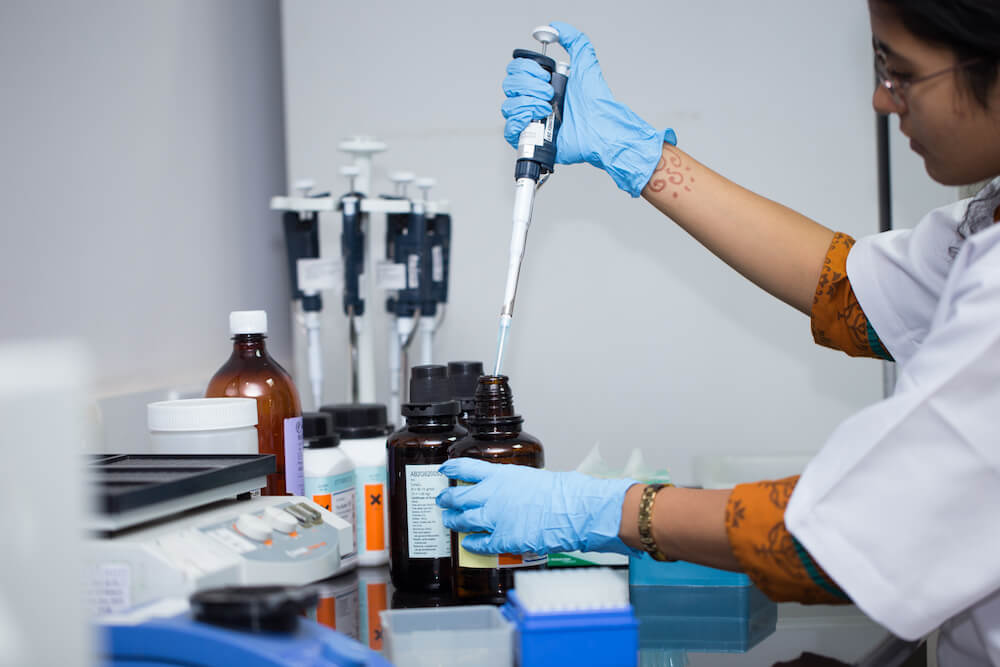How To Find Your True (Genetically-Mapped) Self In A Selfie Obsessed World
Jul 19, 2017
31412 Views
We sat down with Mapmygenome Founder & CEO Anu Acharya to discuss how genetic mapping is changing the healthcare industry, one selfie at a time
We live in the age of the selfie, where making a duck face and posting it online for the world to see is just your typical enroute-to-work routine. But what if you could take a selfie that actually told you about yourself and your destiny? With the tagline “Discover your true selfie,” Mapmygenome is a Hyderabad-based molecular diagnostics company that performs genetic tests and decodes DNA-based health problems inherited from ancestors to reveal things like whether you’re prone to alcoholism, diabetes, baldness, obesity or nicotine dependence. Trained medical counsellors then advise you on what lifestyle changes you need to make to live a healthier, happier life.
We sat down with Mapmygenome Founder & CEO Anu Acharya to discuss how genetic mapping is changing the healthcare industry, one selfie at a time.

How did the MapMyGenome business concept come about?
Anu: One of the biggest challenges in the medical industry today is that most of it is still leveraged according to what’s available in the US, so the majority of the data represents Caucasian people. This means that the largest pharmaceuticals in the world only have a small percentage of data for the largest populations in the world like India and China. That sparked me to ask: “What is the country’s population versus what is the actual presentation of data that can provide truly personalized medicine?” and that’s how Mapmygenome was started. Then I thought that maybe we can democratize this information by making it available to more populations, which is what we’re currently doing—spending $150 million to build that.
We started working with various hospitals and healthcare providers. Treating actual problems was the first thing that people wanted, and that’s how we got started, but now we want to prevent people from even getting sick in the first place. We started off helping hospitals through this process and did a lot of trials to guide hospitals through this, whether it was for a newborn screening, or helping them understand the processes of their cancer treatment and so on. We now have a package which is 50 percent clinical and 50 percent direct-to-consumer, because ultimately we want to help consumers andphysicians.
What does MapMyGenome offer?
Mapmygenome offers a wide variety of genetic testing services that can be broadly categorized into two main segments: 1) Prognostic Testing which provides health information and actionable steps to individuals through genetic analysis and counselling, even before any of the health traits or conditions are manifested, and 2) Diagnostic Testing which provides molecular diagnostic tests customized for the Indian population for clinical cases of genetic disorders, conditions and diseases. These include whole genome sequencing, whole exome sequencing and targeted panels. That will enable us to do what we had set out to do, which was to get enough data points, especially for the Indian population.

What do you feel will be the most important impact of this data on society as a whole?
If we have more specific data for different countries and ethnicities, we’ll potentially have more targeted and precise medicines for every individual population. For us, the biggest impact will be on the Indian population. It could also be a great way for some countries or states to be able to look at their resources and readily distribute finances towards these areas, rather than reactively doing so as problems arise.
If people start to realize that they can prevent a disease and live more healthily by understanding their own genetic predispositions, then we can make a much larger impact on society if this is done right and at scale.
Discovering your own genetic data is quite intimidating for some people. How do you help alleviate this fear element for your patients?
When we started, people often thought that getting a genome map was about giving them a diagnosis, or essentially, telling them when they were going to die. Instead our counselors help them understand that this doesn’t mean they’re going to get something, but that their environment, nutrition and lifestyle habits are what’s going to contribute to the outcome. Take something like a diabetes for example. 26 percent is in your genes, but 74 percent is still in your control. We’ll look at what kind of food they are eating or if they’re regularly exercising. Based on the assessment, we’ll then say, “What is it that you can do now to make those changes happen in your life?” It’s a much more engaged process than giving them a report that says that, “These are the five things that you should be concerned about.”

You deal with very sensitive health data. How do you make sure that the data is tamper-proof and isn’t misused?
We keep genetic data and contact information in two separate databases. There is a barcode, and as soon as the sample comes in, the barcode is translated and anonymized. Essential information that gets stored along with the genetic data is just age and gender, but not the person’s name. Only the counselor gets access to their details, but even that’s just for a limited period of time. We ensure that customers own their data—it is their private property.
What are some of the biggest ideas and shifts that we’ll be seeing in the genome mapping industry in the future?
One biggest change will be cost. In the next few years, hopefully a whole genome sequence will only cost $100 dollars. People need to realize that it’s so much cheaper to receive information upfront to prevent health issues, than waiting till they surface later in life. If you had every child sequenced at birth, it would be easier to have a baseline to be able to see what mutations actually occurred and how we should treat them.
Your brand messages are “Know Yourself” and “Discover Your True Selfie.” What do you mean by these taglines?
If you look at your genetic information, it’s like taking a photograph of the real you, because it’s your own data that you are taking a picture of. It’s a do-it-yourself process. You take the gene swab in your house, send the sample back and get the report. You have all this information about yourself, but you don’t need to share it with anyone else unless you wish to. The other deeper message is that all of your DNA is carrying information from many generations before you, so the sample is like having little cameras that have been taking pictures of you for thousands of years.
Originally Published: https://goo.gl/SA6rH7
